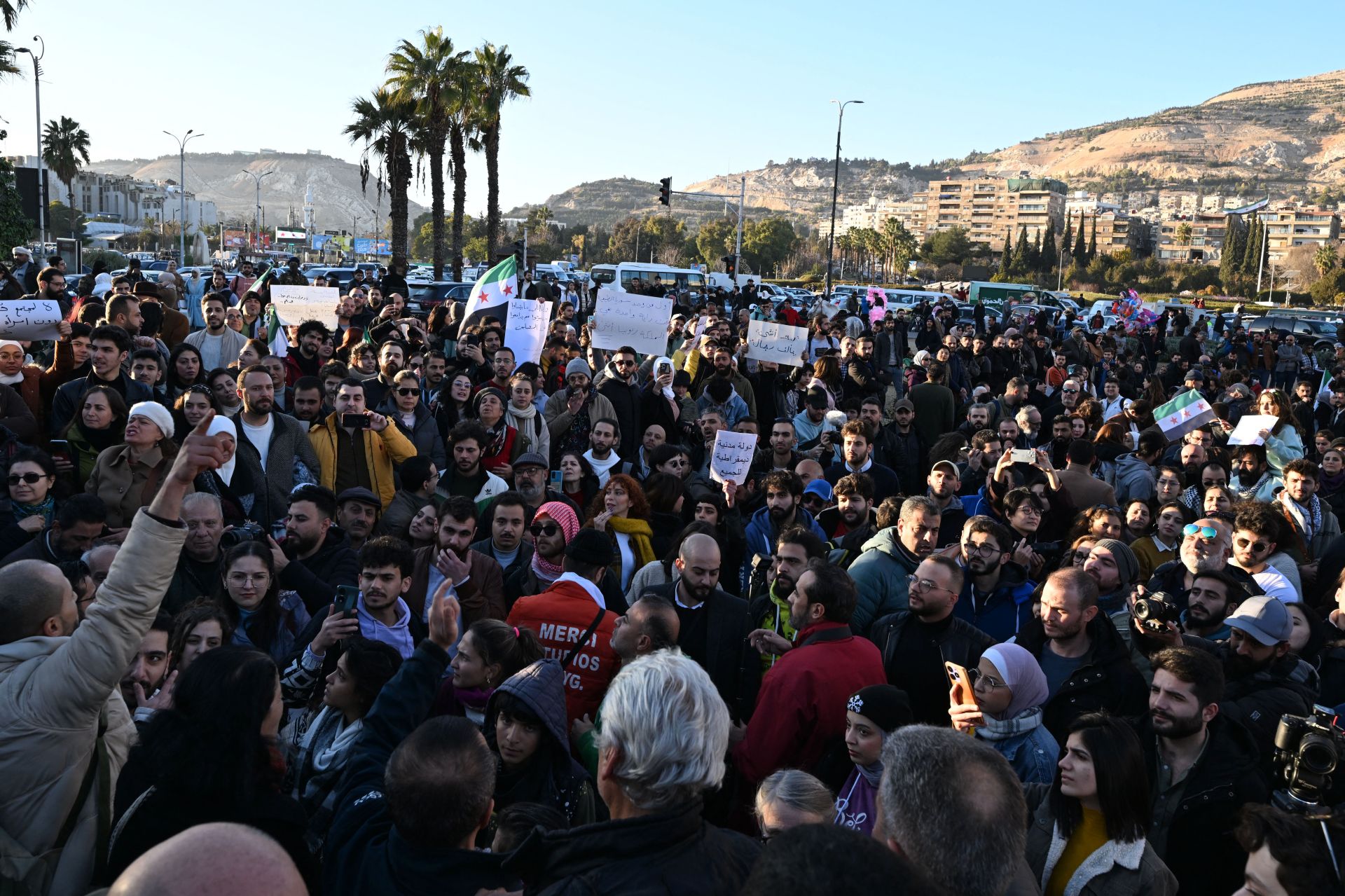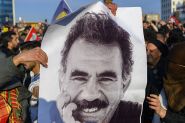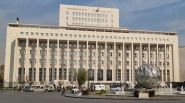- Home
- Middle East
- Hundreds in Damascus Protest for Democracy, Women's Rights

Syrian attend a gathering to call for democracy and women's rights in Damascus' Umayyad Square on December 19, 2024. ©LOUAI BESHARA/AFP
In Damascus's Ummayad Square, hundreds gathered Thursday, demanding a democratic state that includes women in public life, marking the first such demonstration since Islamist-led rebels toppled longtime ruler Bashar al-Assad.
Women and men, young and old, chanted slogans including "No to religious rule", "God is for religion and the homeland is for all", and "We want a democracy, not a religious state".
"We are here in peaceful action to safeguard the gains of the revolution that has let us stand here today in complete freedom," said Ayham Hamsho, 48, a prosthetic limb maker in the country torn by more than 13 years of war.
"For more than 50 years, we have been under tyrannical rule that has blocked party and political activity in the country," he told AFP.
"Today we are trying to organize our affairs" in order to achieve "a secular, civil, democratic state" that is decided at the ballot box, he added.
For days, Syrians celebrated in Ummayad Square after rebels led by Islamist group Hay’at Tahrir al-Sham took the capital on December 8 and toppled Assad after a lightning offensive.
Rooted in Syria's branch of Al-Qaeda and proscribed as a "terrorist" organization by several Western governments, HTS has sought to moderate its rhetoric by assuring protection for the country's many religious and ethnic minorities.
It has appointed a transitional leadership to run the country until March 1.
'Secular'
Despite the reassurances, many Syrians fear the new administration will move towards religious rule that marginalizes minority communities and excludes women from public life.
On Thursday, some protesters held signs reading simply the word "secular", while one man held a sign with the scales of justice hanging equally and the words "men" and "women" written below.
People also chanted "the Syrian people are one", rejecting divisions among the multi-confessional and multi-ethnic country.
A few armed HTS fighters, some of them masked, roamed around at the demonstration.
One told the crowd, "the great Syrian revolution was victorious through armed force", before protesters cut him off, chanting, "Down with military rule".
One young man wearing keffiyeh scarf and dark glasses held a hand-written sign saying, "No free nation without free women", while another demonstrator's placard read "Equality between women and men is a legitimate Islamic and international right".
Actress Raghda Khateb, standing with friends among the crowd, said "Syrian women have been a constant partner on the streets, in protecting protesters, in tending to the wounded, and in prisons and detention centers".
She said the demonstration was part of "preventive" action to block any attempts to establish strict conservative rule in the country.
"The people who took to the streets against the murderous regime are ready to come out again and to rule," she added.
'Must lead'
The demand for women's right to participate in political life came days after Obaida Arnaout, spokesman for the new political administration, said "female representation in ministries or parliament... is premature", citing "biological" and other considerations.
The remarks sparked criticism and anger among some Syrians, including protester Majida Mudarres, 50, a retired civil servant.
"Women have a big role in political life... We will be observing any position against women and will not accept it. The time in which we were silent is over," she told AFP.
Assad's family crushed dissent, ruling Syria with an iron fist for decades.
Fatima Hashem, 29, who writes television series, said Syrian women "must not be just partners but must lead the work of building a new Syria".
Women must be "a major voice in the new society", added Hashem, who was wearing a white hijab.
Under Assad's anti-Islamist rule, women were involved in Syria's political, social and economic life, with parliamentary and ministerial representation sometimes ranging between 20 percent and 30 percent.
Researcher Widad Kreidi said she was worried by some statements from HTS, which until just weeks ago ruled a conservative rebel bastion in Syria's northwest.
"While men were fighting, women were keeping up the economy, feeding their children and taking care of their families," Kreidi said.
"Nobody has the right to come to Damascus and attack women in any way," she added.
With AFP
Read more



Comments